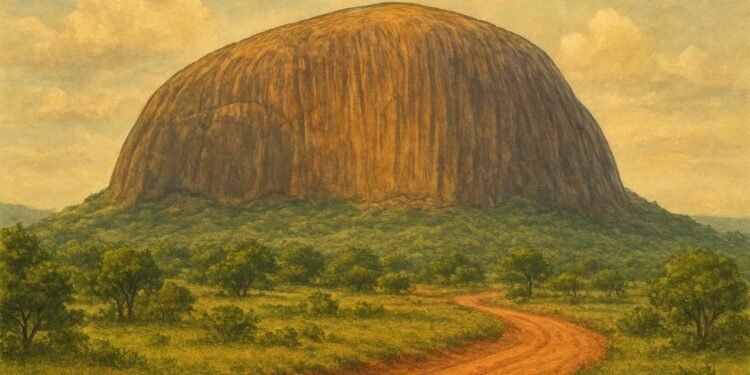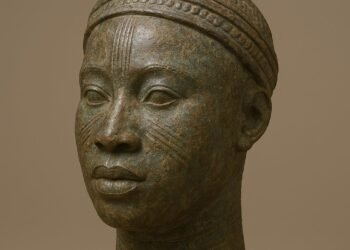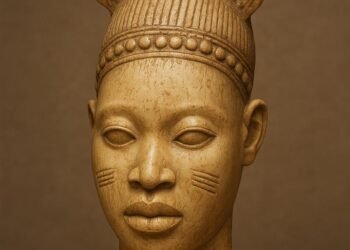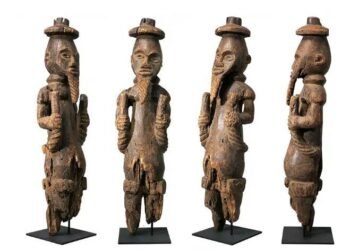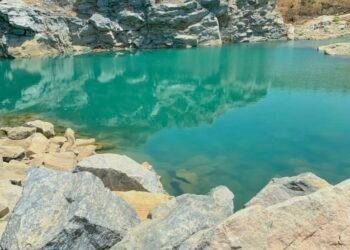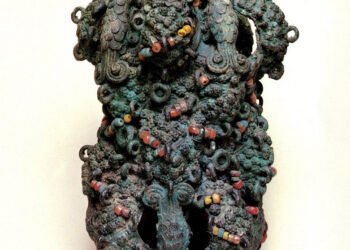Aso Rock: The Heart of Nigeria’s Scenic Beauty
Aso Rock is a prominent geological feature in Abuja, Nigeria, that cannot be missed due to its immense size. It’s not just any building feature; it is the country’s political hub, known worldwide.
Besides its physical presence, a mystery surrounds Aso Rock, adding to its cultural and symbolic significance in Nigeria. It is not an ordinary rock; Nigerians worship it.
It represents the power of government, culture, and heritage. Indeed, the rock is gigantic; about 1,300 feet tall! You see it from any location within Abuja, watching over the central government complexes.
Read Also: Uncover the Mysteries of Zuma Rock in Nigeria
‘Aso’ is a victorious name, a call to remembrance of the past when it was a center for victory and never disappointing. Aso Rock is a blend of nature, power, and culture that appeals to both natives and visitors alike.
Table of Contents
Geological Formation and Natural Features
Aso Rock is a gigantic rock formation that was created over time through geological activities, imparting its distinctive granite appearance.
It’s one of the largest West Africa has to offer, with its tough texture and massive size. Aso Rock is an environment teeming with life, featuring a diverse combination of plants and animals that will seriously entice nature lovers.
Birdwatchers especially love the diversity of avifauna available there, and that is what also makes the place more beautiful.
The special geologic features of the rock and the surrounding natural landscape create a peaceful environment, offering relief from the chaotic political atmosphere of the nearby city.
Historical Importance and Cultural Heritage
Aso Rock has been on good terms with the Asokoro Gwari, its original owners. It is not just some enormous rock to them; it’s victory and survival, you might guess from the name Aso.
It’s widely believed that priests take shifts to keep vigil at Aso Rock, guarding its spiritual significance. Thus, one seeking to climb the rock or explore its caves must first obtain proper clearance.
Aso Rock has been a cultural icon long before Abuja was declared the capital city. It has made a significant contribution to the history and lives of people for centuries.
Political salience and Centre of Government
Way back in 1991, Nigeria relocated its capital city from Lagos to Abuja, and it was then that Aso Rock truly became a political hub.
Now, it has room for important buildings such as the Supreme Court, the National Assembly, and the Presidential Complex, commonly referred to as Aso Villa.
Read Also: Why Erin Ijesha Waterfall Should Be On Your Bucket List
Designed in ’91, that villa just so happens to be where the President lives and conducts his business.
Aso Rock Declaration and Global Relevance
The Commonwealth Heads of Government met in 2003 at Aso Rock, which drew significant international attention. The leaders gathered and, in the end, signed the Aso Rock Declaration, a significant milestone in the organization’s diplomatic efforts.
Leaders of the Commonwealth met at this conference and formally adopted the Aso Rock Declaration.
The statement put development and democracy promotion at the forefront of the organization’s agenda, reaffirming Commonwealth values as codified in the Harare Declaration.
The ceremony highlighted Aso Rock’s geographical location, situating it beyond the fringe of Nigeria and marking it on the map as a venue for serious diplomatic interaction and international coordination.
Visitor Experience and Recreation Activities
There are numerous activities for tourists to engage in at Aso Rock. Hiking is a clear winner, with numerous hiking trails that lead to the top, offering the finest Abuja scenery.
The hike is tough but rewarding. The panoramic views of the city leave you proud of yourself. The picturesque location and unique rock formation of Aso Rock are also favorite subject matter for photographers. In case you would like to take some time out, nature walks along the foot allow you to absorb the serene atmosphere and observe local animals and plants. Bird watching is also an entertaining option, offering a chance to observe a diverse range of bird species.
If you do go, the best time of day to visit is between 8 AM and 5 PM. Entry to the rock itself is free; however, if you would like to go on a guided hike or tour, you will need to pay for it.
Mysteries and Spiritual Significance
Beyond its political and geological significance, Aso Rock carries spiritual importance and is shrouded in local mysteries. The presence of local priests who care for the rock suggests its ongoing religious significance to indigenous communities.
Visitors interested in exploring the rock’s caves are expected to seek permission from these guardians, a gesture that reflects the continued reverence for traditional beliefs and practices.
While specific details about spiritual practices are not widely documented in available sources, the rock’s cultural importance to the original inhabitants suggests a deep spiritual connection that predates its political significance.
This spiritual dimension adds layers of meaning to the rock beyond its obvious political and geological attributes.
Accessibility and Transport
Aso Rock is fairly accessible, considering that you are already in Abuja. Abuja is easily accessible due to its well-maintained roads, railroad tracks, and airport.
You can either drive yourself, use a regular taxi, or ride via ride-sharing services like Uber. If you are coming from cities such as Kano or Kaduna, buses to Abuja are at hand.
Within the city, ride-hailing options and taxis are available to take you to Aso Rock or the Presidential Villa.
A taxi trip around Abuja will take you between 500 and 2,000 Naira, depending on distance and traffic.
You will pay more to travel by taxi from cities to Aso Rock, 5,000 to 15,000 Naira. This is due to the convenience and assumed distances in such travel plans.
Attractions and Points of Interest Around
Beyond Aso Rock are some of the most popular attractions. The National Christian Centre and National Mosque showcase the country’s mix of religions and are not too far away.
Jabi Lake is a tranquil, man-made lake where people can take boat cruises and enjoy the serene surroundings. Millennium Park features clean, green areas, well-maintained footpaths, and a quiet atmosphere, making it an ideal spot for family and picnic outings.
Read Also: The Dogon People: Ancient Culture and Mystical Beliefs
To tour all these sites, excluding Aso Rock, enables citizens to experience even more of Abuja’s cultural and natural attractions. All these sites are located near the seat of Nigeria’s government, offering a diverse range of political, religious, and recreational attractions in one convenient location.
Conservation and Environmental Factors
Although there is incomplete information on specific conservation actions regarding Aso Rock from available sources, its natural character and cultural significance as a symbol make it call for sustained efforts towards its protection and integrity.
Its unique geological features and the environment that it sustains are highly likely to be granted some kind of protection due to their visibility and significance.
The area surrounding the rock, where most government buildings are housed, is well-planned to maintain its environment. As Abuja grows into a capital city in Nigeria, urban developers and environmental scientists are working to achieve a balance between urbanization and the preservation of the renowned natural landmark.
Conclusion: The Enduring Symbolism of Aso Rock
Aso Rock is a multifaceted symbol of Nigeria’s identity, a repository for the nation’s natural heritage and political ideals. From its geologic origins thousands of years earlier to its present role as the platform of Nigerian democracy, the rock symbolizes the nation’s blemished past and radiant future.
Its cultural significance to native groups and its political importance to the country combine to give it a rich and layered meaning that appeals to diverse audiences.
Regardless of whether it is viewed as a natural phenomenon, a political icon, or a cultural symbol, Aso Rock continues to attract visitors and Nigerians in wonder at its imposing stature and rich symbolism.
As Nigeria develops as a regional and democratic nation, Aso Rock will certainly be both the geographical and symbolic hub of the nation’s leadership and identity.
